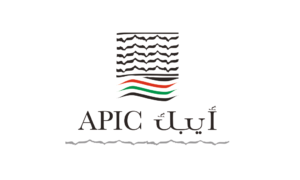Room for Improvement
by Regina Reinhardt
Coaching Events und Kommunikation
Switzerland
Coaching global managers, I often am asked ‘What should I do differently or be aware of, when working with people in a different culture?’ Of course, there are do-and-don’t checklists for adapting to different cultures, and you can follow trainings on culturally-appropriate behaviours. What if we took a different approach and focused on improving what we already do well – on what we can learn from each other?
Let’s start by exploring two cross-cultural value differences, which I believe are potential areas for improvement and growth in our own behaviour.
Perception of Time
When you work in Western time zones, in major international cities, or in globally-present corporate cultures, time is mostly perceived as the equivalent of money – a precious resource never to be wasted. Meetings are planned to the minute; schedules are fully packed days ahead. Being late is not an option, as it is perceived as unprofessional or a loss of face, and can lead to missing out on profitable business opportunities. In a nutshell, time has to be controlled, no matter what!
People in controlled time cultures, typically become very skilled at:
being reliable – specific time arrangements are to be respected as promises
committing – being punctual or even coming early and waiting
showing respect – for other peoples’ time, not wasting it by running late.
Things are quite different in fluid-time cultures. In the MENA region, similarly to Latin America or Southern Europe, time is perceived as fluid, not to be controlled. Like a river flowing through a village, it is steered by nature such as animals, weather conditions, water quality and so on. The river simply is a tool to swim in, a source of nutrition or a meeting point; nobody expects people to control the entire life of a river. Likewise, time is a tool used for making mutual appointments. Life happens and therefore it’s ok to run late, postpone or even reschedule last minute. Time and date are understood as guides rather than something that has to be controlled.
People living and working in communities with fluid-time culture are like surfers on virtual rivers. They typically become very skilled at:
trusting the right thing will happen when the time is right – inshallah!
staying flexible and showing readiness to reschedule meetings, instead of clinging to a plan
prioritising relationships and people over business matters.
What comes first, the relationship or the business?
Trust is crucial for doing business in the MENA as well as Western areas of our globe, no doubt. Trust-building, however, can be done in two fundamentally different ways.
In Western task-oriented cultures, trust is mostly gained through delivering quality, acting reliably, subscribing to punctuality and performing with consistent excellency. It’s no more important than having a well-known family name, being a member of the party in power, being wealthy or having obtained a position in the army. Education is generally accessible, and jobs are available, hence for the majority, a strong education and profound personal commitment are the starting points for a promising career.
Benefits of task-oriented cultures include
- self direction
- punctuality
- independent problem-solving
- transparent communication
- goal-setting and result focus
However, this is not how things always used to be. Asking our grandparents or going back to smaller villages in the countryside, we may find examples of how trust was built through relationships, not that long ago. We used to be the son or daughter of the village teacher, priest or doctor. If a member of the village community was in need, neighbours or wealthy community members would help – out of obligation. Grown-up children would look out for elderly relatives, and trust was inherited, passed along from generation to generation.
Let’s recall the benefits of relationship cultures:
- a reliable network no matter what
- long-lasting friendships to rely on
- knowing whom to trust
- belonging to a community
Back in the MENA area, relationships generally belong to the above-described communal culture. The ground rule is simple; build relationships to rely on, resulting in strong ties that will last, no matter what. Business matters will then be taken care of even on short notice or if they require going the extra mile to honour an existing friendship.
A Real-Life Example
My dear and very generous friend Sam called me one time, quite puzzled, asking for advice. Sam was moving house and had decided to donate his kitchen equipment to an organisation that educates refugees. After a discussion over the phone, Paula, the manager, agreed to come to Sam’s house to collect the equipment herself. Sam, who strongly believes in volunteering and supporting young people’s education, was very excited to meet Paula, and was even considering getting involved as a volunteer. When Paula showed up on Sam’s doorstep with two helpers, Sam opened the door with a huge smile, welcoming them into his living room where he had neatly and mindfully piled his kitchen items.
After a brief hello, Paula walked towards the items, pulled out some bags she had brought along, and started to pack. My friend offered refreshments, expecting them to first sit down and have a chat, (as he was used to doing in the local culture.) Paula, caught by surprise, mumbled something about being in a hurry. While the two young men were packing up the kitchen equipment, Sam kept trying to start a conversation with Paula, who was juggling phone calls and trying to direct the others. Once everything was packed, the young men withdrew to the balcony, and Sam saw his chance to have a quiet moment with Paula. Mentioning his professional background as a coach as well as his fluency in the local language, Sam was hinting at his interest in volunteering. That’s when Paula said: ‘Thank you, Sam, very much for your donation. On our website you will find the email address that you can use to contact us’. She then ordered an Uber car, and asked the young men to bring the packed bags and boxes to the main entrance, to be ready once the car would arrive. After a short chat with the young men (who were refugees themselves), Sam accompanied them all to the entrance, helped to pack everything into the Uber car and waved them farewell until they were out of sight. When returning back to his apartment Sam felt very confused…
Reflections
Let’s consider the different motivations at work here.
Who seems more relationship- versus task-oriented?
How can we account for Sam’s confusion after Paula’s departure?
Reflecting on your own inclination, consider which character you relate to the most. What advantages does this behaviour bring to the scenario? What advantages does the behaviour of the other character bring?
Which culture (relationship or task) do you expect is more prevalent around the globe?
Sam is a relationship-oriented person. He first offered refreshments, expecting a moment to connect with the organisation’s representative and evaluate whether trusting this organisation was the right decision. Not having that time to meet, nor being offered to connect on a personal level for future talks regarding his involvement, Sam clearly started losing the trust he seemed to have before meeting.
Paula on the other hand, a task-oriented volunteer in a foreign country, was in a hurry, eager and challenged to complete a long list of tasks. Wanting to go the extra mile to achieve the best possible result for her organisation, she had even raised funds within her private network back home. Paula was glad to receive the donation and meet a potential new volunteer for her organisation. Apparently, she did not see that by not making time to meet Sam, she might have missed out on the opportunity to enlist a very valuable supporter in her organisation.
Talking to my friend Sam, I explained that Paula likely did her very best given her background (a controlled-time culture), know-how and limited time. As I suggested that she might not be used to local trust-building habits, Sam’s sadness started fading. Together, we then reflected on a strategy for what to do differently next time in this kind of situation, and Sam came to a noble conclusion. In this case, the intention of all people involved – supporting young refugees – was the connecting point. What was important was to appreciate everyone›s involvement, put aside differences, and focus on the common vision instead.
By the way, did you know? 70% of people in the world are relationship-oriented.
Lesson learned
When working across cultures, there is always room for improvement and growth. It’s an opportunity for each of us to recognise, balance, and broaden our skill set, every single day. Depending on our natural inclination and skills, we may be challenged when working with business people educated, trained and experienced in task-oriented communities, benefiting from a time-efficient and self-driven ‘You get what you see’ working culture, yet having to accept that relationships are obviously not a priority.
Or the opposite may be true – we may find it hard to make time and connect with people living and working in relationship-oriented cultures, where an enormously flexible and open mindset is required. On the plus side, we actually might end up with treasured life-long friendships. What a lovely opportunity!
About the author:
Regina Reinhardt
Regina grew up in Athens, Greece, where she graduated from the international college Deutsche Schule Athen. Given her German ancestry she is a typical Adult Third Culture Kid (ATCK). In Switzerland, she started her career as an IT programmer.
After 18 years of employment, Regina fulfilled her dream of running her own business. She founded her agency, Coaching Events und Kommunikation (CEK), and from 2006 onwards has been running it both in Switzerland and Greece.
Specialised in cross-cultural consultancy, she coaches and trains global executives from all five continents. Coaching groups as well as individuals, she is highly committed to helping her clients achieve tailored and sustainable solutions, by applying the Solution Focused coaching approach. Her international clients’ backgrounds vary from industries such as pharma, chemical, medical, automotive, oil and food/non-food, to non-profit organisations and the educational sector.
Regina is fluent in German/Swiss German, English and Greek and offers training and coaching in all three languages.




























